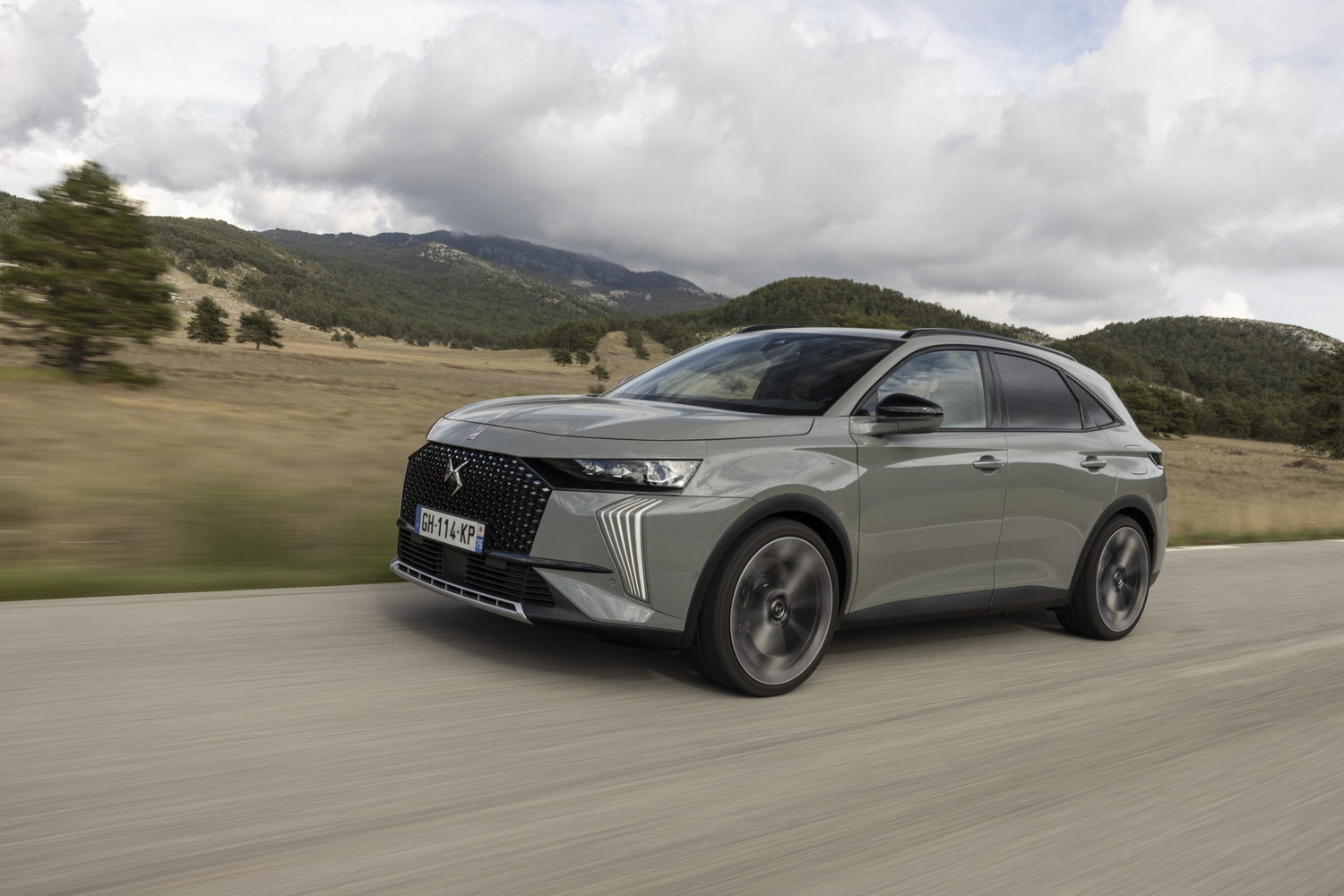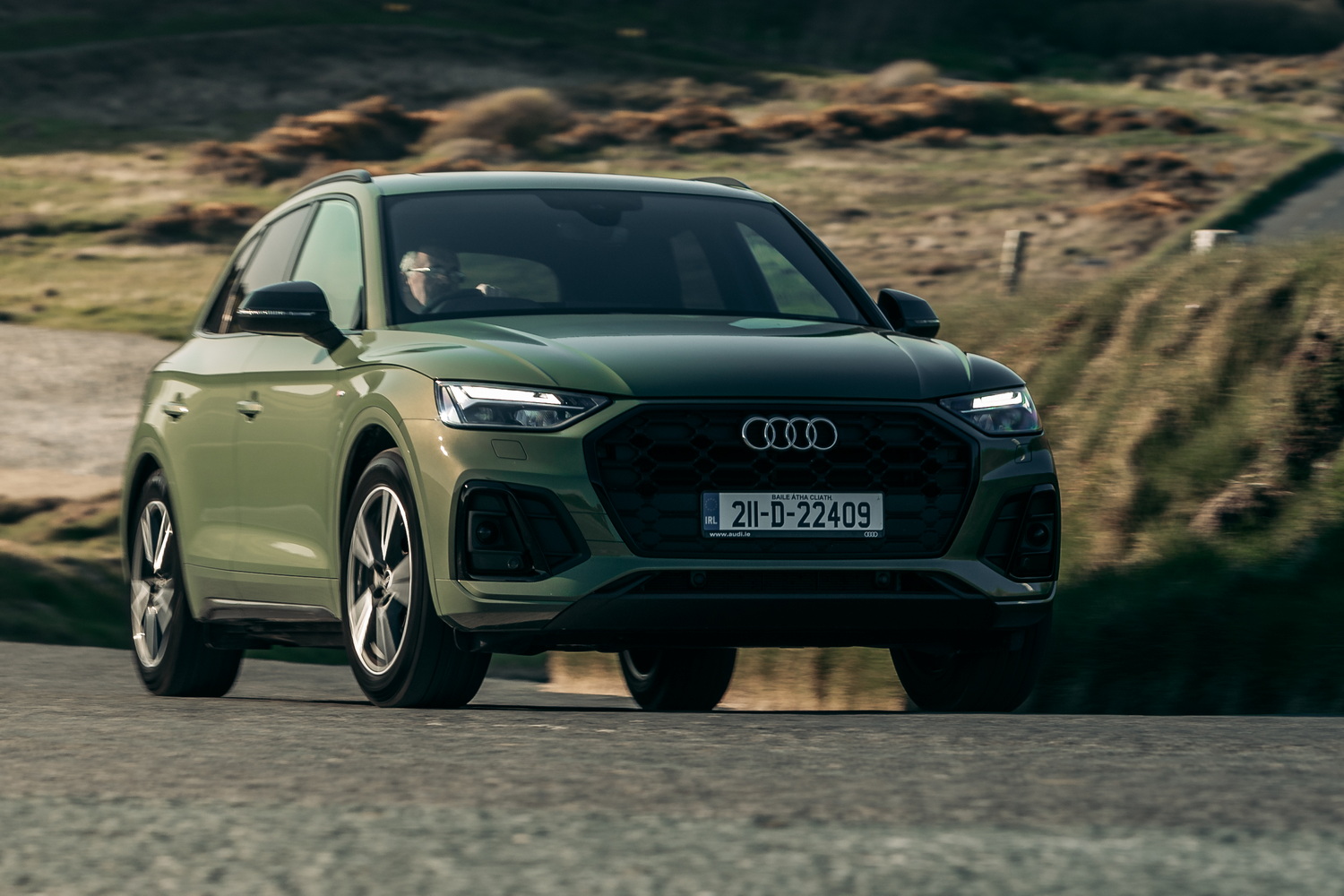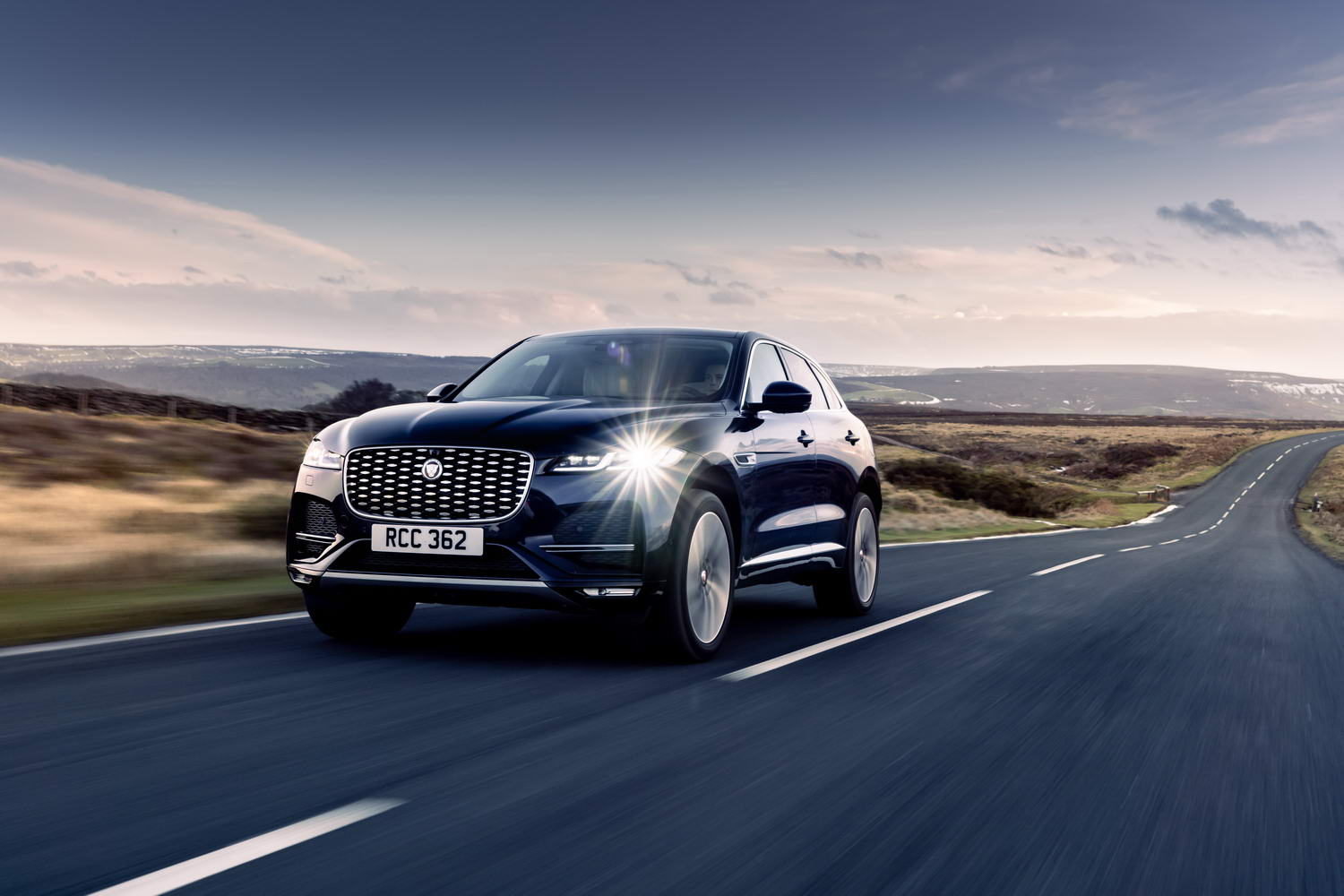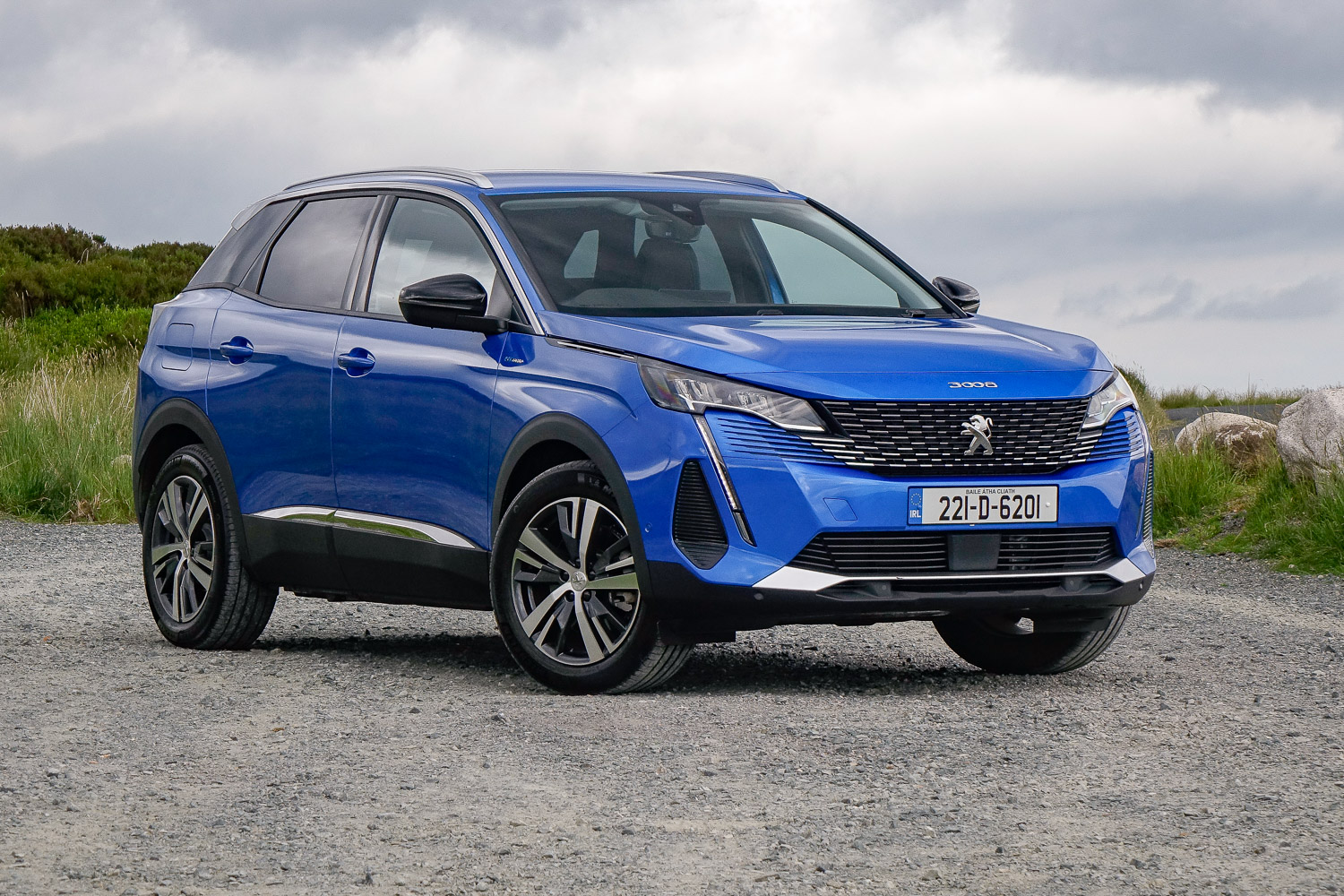The DS Automobiles brand appears to finally be finding its groove now that the dust has settled on the rearrangement of the expansive Stellantis group, of which it is a part. It takes the place of the design-lead premium player to rival the - mostly - German competition.
As a mid-size SUV, the DS 7 has no shortage of competitors. It uses the same platform as the Peugeot 3008 and Opel Grandland, but its design and components make it a higher-end proposition. Its dimensions see it straddle the gap that would fall between an Audi Q3 and Q5 or a BMW X1 or X3.
As part of its mid-life update the DS 7 drops the Crossback from its name and attempts to woo more buyers with exterior styling tweaks and a mostly plug-in hybrid offering. But is it enough to give the established competition a run for its money?
In the metal
The exterior styling around the front of the DS 7 has come in for a makeover. The LED headlights carry a new design that makes them appear slimmer and, in conjunction with a new grille, the DS 7 has a more contemporary look. Both distinctive and innovative, DS introduces the 'Light Veil' to the front, an illuminated panel on either side of the bumper for the daytime running lights. Appearing as four vertical luminous lines, 33 LEDs shine through a laser-etched polycarbonate panel that is painted to match the rest of the bumper.
New wheel options begin with a 19-inch 'Edinburgh' design, while higher-grade versions are offered with 21-inch 'Brooklyn' wheels. At the rear, the LED lights have been redesigned with a dark metallic finish and incorporate an intricate scale pattern. As well as a slightly reworked rear hatch, the DS Automobiles wordmark spans the rear, continuing a trend prevalent in the industry. Despite being available with both a diesel engine and a petrol plug-in hybrid powertrain, the DS 7 boot capacity is the same across the range, measuring 555 litres and expanding to 1,752 litres, which is quite a generous size.
Part of the reason for such a large boot is that the DS 7 is only available as a five-seater. Inside, there is a good amount of rear passenger space, and it is possible to recline the seatbacks for more comfort.
Up front is where more of the effort DS puts into its design can be seen. The quality of the materials confirms its premium status, and while some of the layout is a touch unconventional, it pulls it off well. There is a pair of 12-inch displays, one for the instrument cluster and the second for the touchscreen infotainment system. The latter appears to float out from the centre console, and it's generally nice to use, even if the system takes a bit of familiarisation. As with its relation, the Peugeot 3008, heating and ventilation controls are integrated into the menu system instead of being physical buttons, which is a shame.
Driving it
Of the three plug-in hybrid powertrains that the DS 7 is available with, this E-Tense 4x4 360 is the most powerful, with maximum combined outputs of 360hp and 520Nm. That comes from a 1.6-litre four-cylinder petrol engine working with two electric motors fed by a 14.2kWh battery. Charging said battery takes as little as 1 hour 45 minutes from a 7kW domestic wallbox. With a full charge the DS 7 E-Tense 4x4 360 will cover up to 58 kilometres on electric power. Stick with the less powerful E-Tense 225, which has a single electric motor and smaller wheels, and that electric range increases to 69 kilometres.
You don't notice the sound insulation quite so much when you first begin driving in electric mode, as the electric motors make next to no noise. Low-down performance is good thanks to a generous helping of torque from the electric motors. The power delivery is smooth, too - it doesn't have that instant jolt of neck-snapping acceleration that some electric cars possess. In fact, for all the performance the DS 7 has in reserve, it comes across as a car that isn't trying to be overtly performance-based at all.
Wring its neck and in a straight line it's undoubtedly quick, but the combustion engine becomes very vocal when you do that, and not in a good way. The automatic transmission is easily confused, too, and sometimes hesitates in choosing a gear ratio. Carry speed into a bend and you begin to sense the car fighting against its own weight too. This dual-motor PHEV tips the scales at 1,885kg, a fair jump from the diesel's 1,499kg weight.
The DS 7 PHEVs all come with the brand's Active Scan Suspension, a camera-based system that assesses the road surface and alters each wheel to compensate for imperfections. We can't say that it truly makes all that much difference as the roads where we drove this latest DS 7 were relatively smooth and well-maintained to begin with, and although the technology is somewhat clever, we'd wager that fitting smaller diameter alloy wheels with a more generous sidewall will do more to improve ride comfort.
On a motorway cruise is where the DS 7 gets into its stride. The plush five-seat SUV purrs along and the lack of wind or road noise is nothing short of impressive. It easily rivals the Audi Q5 - one of the quietest cabins in the segment. The front seats are comfortable thanks to plenty of adjustment and even feature a massage function. The DS 7 is very much a car for getting from A to B in a relaxed state in.
What you get for your money
As the updated DS 7 isn't set to arrive in Ireland until early 2023, the Irish pricing and specifications have yet to be announced. The range will likely continue to start with the diesel, but it's unclear which plug-in hybrids DS Automobiles will offer. As the details are finalised, this section of the review will be updated.
Summary
The DS 7 isn't a household name, which may also prove to be part of its appeal to buyers looking for a luxury SUV that isn't the default option. Something of an unusual choice, the DS 7 matches the quality and refinement of cars with established premium badges fitted, which more than makes up for its deficit in dynamic ability.


























